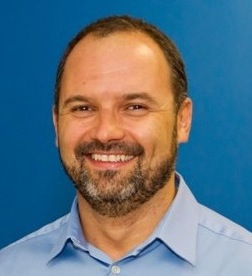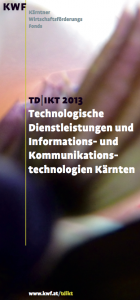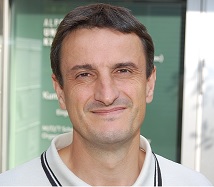 Abstract:
Abstract:
There are many challenging problems in computer vision for which state-of-the-art solutions fall short of performing perfectly. The realization that many of these tasks are arduous for computers yet are relatively easy for humans has inspired many researchers to approach those problems from a human computation viewpoint, using methods that include crowdsourcing and games – often called ‘games with a purpose’ (GWAPs). The talk discusses how we can use human computation (in general) and particularly games to help uncover hidden aspects of visual perception and use these findings to improve computer vision solutions to related problems. It particularly highlights two examples of our recent work on the topic:
1. Guess That Face (with Mathias Lux and Justyn Snyder, CHI 2013): a face recognition game that reverse engineers the human biological threshold for accurately recognizing blurred faces of celebrities under time-varying conditions.
2. Ask’N’Seek (with Vincent Charvillat and Axel Carlier, ECCV 2012): an object detection and labeling game that asks users to guess the location of a hidden region within an image with the help of semantic and topological clues and uses the information collected from game logs, combined with results from content analysis algorithms, to feed a machine learning algorithm that outputs the outline of the most relevant regions within the image and their names.
Short CV:
Oge Marques is an Associate Professor in the Department of Computer & Electrical Engineering and Computer Science at Florida Atlantic University (FAU) (Boca Raton, Florida). He received his Ph.D. in Computer Engineering from FAU in 2001. He has more than 20 years of teaching and research experience in the fields of image processing and computer vision, in different countries (U.S., Austria, Brazil, Netherlands, Spain, France, and India), languages (English,Portuguese,Spanish), and capacities.He is the (co-) author of more than 50 refereed journal and conference papers and several books in these topics, including the textbook Practical Image and Video Processing UsingMATLAB (Wiley, 2011). His research interests are in the area of intelligent processing of visual information, which combines the fields of image processing, computer vision, image retrieval, machine learning, serious games, and human visual perception. He is particularly interested in the combination of human computation and machine learning techniques to solve computer vision problems.
He is a senior member of both the ACM and IEEE, and a member of the IEEE Computer Society, IEEE Education Society, IEEE Signal Processing Society, and the honor societies of Tau Beta Pi, Sigma Xi, Phi Kappa Phi, and Upsilon Pi Epsilon.



 Abstract: Many daily activities we want to finish as fast and smoothly as possible. The same applies when we use our computing devices. Examples range from low-level actions, such as selecting the “Print” item from the “File” menu or clicking on desktop icons, to higher level activities and more complex tasks, such as finding the favorite holiday photo in the personal collection, or to use a smartphone to navigate a city map or to browse a long list of products before deciding on a purchase. Throughout the years, the desire for interaction efficiency has motivated the Human-Computer Interaction research community to seek and explore new interaction mechanisms and user interface techniques that improve on the state of the art. In this talk I will present a handful of past projects in which we have applied the experimental method to arrive at insights regarding novel user interface design solutions.
Abstract: Many daily activities we want to finish as fast and smoothly as possible. The same applies when we use our computing devices. Examples range from low-level actions, such as selecting the “Print” item from the “File” menu or clicking on desktop icons, to higher level activities and more complex tasks, such as finding the favorite holiday photo in the personal collection, or to use a smartphone to navigate a city map or to browse a long list of products before deciding on a purchase. Throughout the years, the desire for interaction efficiency has motivated the Human-Computer Interaction research community to seek and explore new interaction mechanisms and user interface techniques that improve on the state of the art. In this talk I will present a handful of past projects in which we have applied the experimental method to arrive at insights regarding novel user interface design solutions.
 Abstract: Software is omnipresent. It is key to successful businesses and has become key to our social activities. As many systems, also software systems need to change in order to stay successful on the market. However, these changes cause software systems to become larger in size and more complex as described by Lehman’s Laws of Software Evolution. As a consequence, more resources are needed to maintain, or in general, evolve a software system. Evolving software systems is therefore mastering change and system complexity. The goal of my research and teaching is to provide software engineers with means to master this challenge.
Abstract: Software is omnipresent. It is key to successful businesses and has become key to our social activities. As many systems, also software systems need to change in order to stay successful on the market. However, these changes cause software systems to become larger in size and more complex as described by Lehman’s Laws of Software Evolution. As a consequence, more resources are needed to maintain, or in general, evolve a software system. Evolving software systems is therefore mastering change and system complexity. The goal of my research and teaching is to provide software engineers with means to master this challenge.